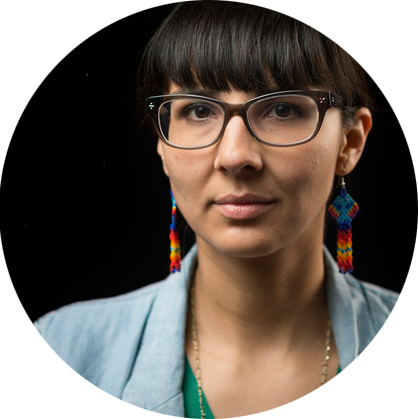ERIEL DERANGER on Radicality Amid Expanding Tar Sands /45
The Marguerite River's many backwaters and oxbow lakes, flanked by tar sands expansion and wildfire in Northern Alberta; photo via NOAA
In this episode we speak with activist Eriel Tchekwie Deranger about the largest industrial project in the world, the tar sands in Alberta, Canada, and strategize about the future of fossil fuel resistance. We discuss institutional warfare waged by extractive industry on Indigenous sovereignty, land rights, and the boreal forest—“the other Amazon”—Earth’s preeminent carbon sink. We cover the political manipulation that has secured new oil and gas pipeline construction in Canada despite exuberant public outcry, and how a movement must target the source and the motive for extraction, not just the routes of transport.
Eriel Tchekwie Deranger
Eriel is an Indigenous rights advocate and member of the Athabasca Chipewyan First Nation (ACFN), Treaty 8 of Northern Alberta, Canada. She works to raise awareness about the negative climate, human and Indigenous rights impacts of the extractive industry in her Nation’s traditional lands and territory. Eriel is a founder of Indigenous Climate Action, a national Indigenous civil society vehicle to push for a united Indigenous climate action strategy in Canada. She has worked with various Indigenous and non-Indigenous organizations, including the Federation of Saskatchewan Indian Nations, Indigenous Environmental Network, Sierra Club, Rainforest Action Network and the UN Indigenous Peoples Forum on Climate Change. She is married and mother of two and currently resides in Edmonton, Canada.
♫ Music includes "I Pity The Country" by Willie Dunn, "Where Is My Mother" by The Wailing Wailers, and "Black Crow" by Joni Mitchell.



For The Wild is a slow media organization dedicated to land-based protection, co-liberation, and intersectional storytelling. We are rooted in a paradigm shift away from human supremacy, endless growth, and consumerism. As we dream towards a world of grounded justice and reciprocity, our work highlights impactful stories and deeply-felt meaning making as balms for these times.